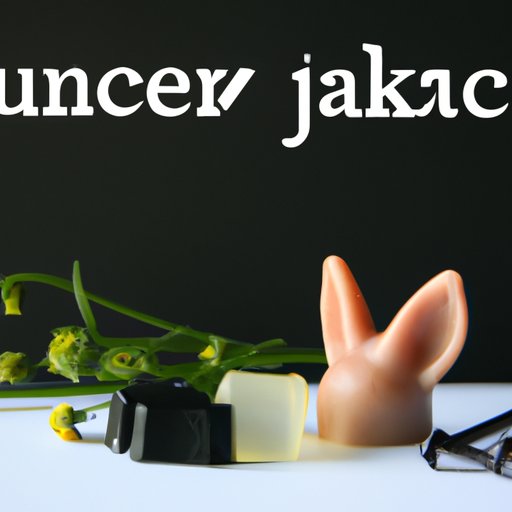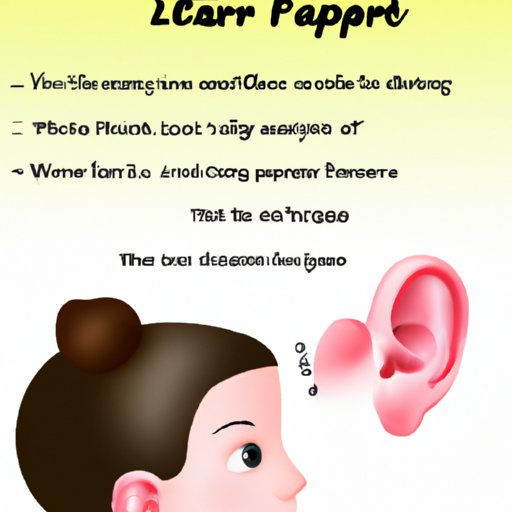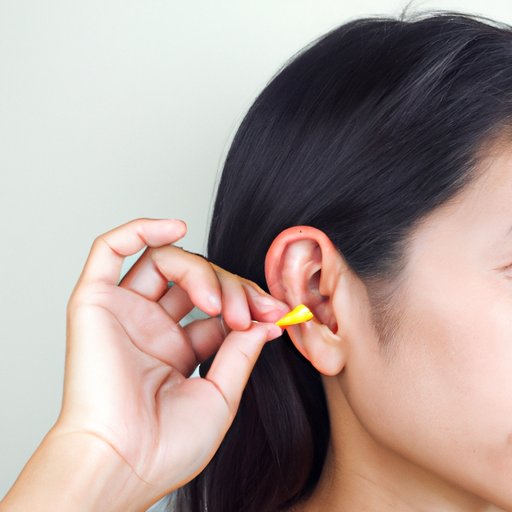Introduction
Clogged ears can be an annoying and uncomfortable experience. For some, it might feel like their ears are completely blocked, making it difficult to hear properly. Ear popping is one way to alleviate these symptoms and improve hearing, but it’s important to understand the causes and effects of this technique before attempting it.
Clogged ears are caused by an accumulation of fluid or air pressure in the inner ear. This can be due to a variety of factors, such as allergies, sinus infections, colds, or even changes in altitude. The fluid or air pressure can cause a feeling of fullness or discomfort in the ear. Ear popping is a method of relieving this pressure, allowing people to regain their hearing and reduce discomfort.
Exploring the Causes and Treatment Options for Clogged Ears
Before attempting to pop your ears, it’s essential to identify the underlying cause of the clogged ears. Common causes include allergies, sinus infections, colds, and changes in altitude. Allergies can trigger inflammation of the lining of the eustachian tube, leading to fluid buildup. Sinus infections and colds can also cause swelling in the eustachian tube, leading to fluid buildup. Changes in altitude can lead to air pressure changes in the ear, resulting in a feeling of fullness or discomfort.
In many cases, medical treatment may be necessary to address the underlying cause of the clogged ears. Antihistamines, decongestants, nasal sprays, and antibiotics may be recommended for allergies, sinus infections, and colds. If the clogged ears are caused by a change in altitude, the doctor may recommend avoiding activities that involve rapid changes in altitude, such as flying or scuba diving.
How to Pop Your Ear: A Step-by-Step Guide
Once the underlying cause has been identified and treated, if necessary, you can attempt to pop your ear. There are two main methods for popping your ear: the Valsalva maneuver and the Toynbee maneuver. Both methods involve forcing air into the inner ear to equalize the pressure.
Valsalva Maneuver: The Valsalva maneuver is the most commonly used technique for popping your ear. Here are the steps for performing the maneuver:
- Close your mouth and pinch your nostrils shut with your fingers.
- Take a deep breath and then try to exhale while keeping your nose pinched shut.
- Continue to exhale until you feel a “pop” in your ears.
Toynbee Maneuver: The Toynbee maneuver is another technique for popping your ear. Here are the steps for performing the maneuver:
- Tilt your head slightly forward and down.
- Swallow several times.
- Take a deep breath and swallow again while keeping your mouth closed.
- Continue to swallow until you feel a “pop” in your ears.

What You Need to Know About Ear Popping
It’s important to take certain safety precautions when attempting to pop your ears. First, make sure that the underlying cause of the clogged ears has been identified and treated, if necessary. Second, do not use any objects to force air into the ear, such as cotton swabs or other items. Doing so can damage the inner ear and cause further complications.
In addition, there are some potential side effects of ear popping. These include dizziness, nausea, vertigo, and ear pain. If you experience any of these symptoms after popping your ears, stop the maneuver and seek medical attention immediately.

Natural Remedies for Unblocking Ears
If you’re looking for a more natural remedy for clogged ears, there are several herbal and home remedies that may help. Herbal remedies such as garlic oil, mullein oil, and tea tree oil have been used to treat ear infections and clogged ears. Home remedies such as steam inhalation, warm compresses, and saline drops may also help reduce swelling and unblock the ears.

Understanding the Benefits of Ear Popping
Ear popping can provide several benefits, including improved hearing and reduced discomfort. Improved hearing is the most obvious benefit and can be achieved by equalizing the pressure in the inner ear. Reduced discomfort is also a common benefit, as the pressure in the ear is relieved and the feeling of fullness is alleviated.
Conclusion
Ear popping can be an effective way to relieve clogged ears and improve hearing. Before attempting to pop your ear, it’s important to identify and treat the underlying cause of the clogged ears. In addition, safety precautions should be taken when performing the maneuver. If done correctly, ear popping can provide relief from clogged ears and improved hearing.
(Note: Is this article not meeting your expectations? Do you have knowledge or insights to share? Unlock new opportunities and expand your reach by joining our authors team. Click Registration to join us and share your expertise with our readers.)
